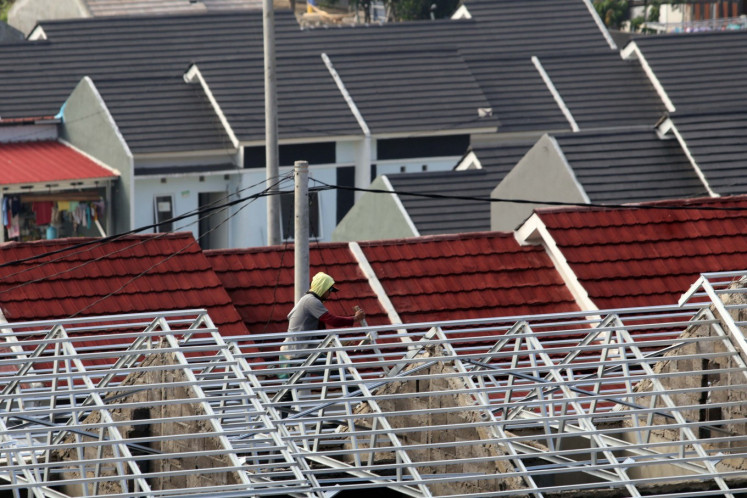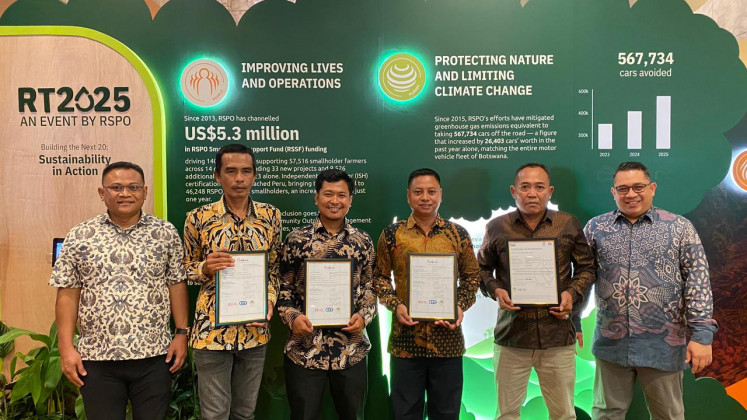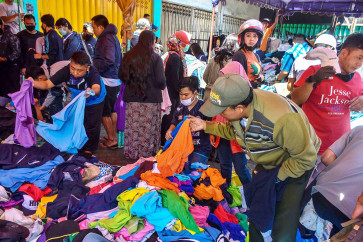Popular Reads
Top Results
Can't find what you're looking for?
View all search resultsPopular Reads
Top Results
Can't find what you're looking for?
View all search resultsBusinesses cast doubt on govt's thrifting ban efforts
The government has for may years imposed a ban on secondary clothing import on the grounds of protecting local micro, small and medium enterprises (MSMEs). But the implementation of this policy is questionable, given that the real problem lies in corruption, a vast network of smugglers and domestic productivity.
Change text size
Gift Premium Articles
to Anyone
T
he government has put attention to banning imported secondhand clothing on the grounds of the Indonesian market to protect local industries from thrifting practices. But businesses claimed that unsolved bribery and smuggling in the country may stand in the way to effectively enforce the policy.
Thrifting refers to shopping for used items at discounted prices. In some countries the goods in question are imported secondhand in large quantities, allowing it to be sold at a far cheaper price than locally made items.
President Joko “Jokowi” Widodo addressed the issue as “greatly disrupting the domestic industry” and has kickstarted two of his ministries to take concrete measures against the trend.
Imported secondhand clothing for many years has made frequent appearances in Indonesia, as a weakened global economy caused goods to flow to places with strong domestic demand.
The value of imported secondhand clothing is actually quite small, amounting to US$272,146 in 2022, but it jumped by more than 500 percent compared with the previous year, Statistic Indonesia data show.
The growth skyrocketed, while value on regular imported clothes saw a slowdown by 12.34 percent and 3.55 percent for knitted and non-knitted items, respectively, in the same period.
Local businesses have hailed the recent government move to contain the influx of imported secondhand goods, but many chose to take it with a grain of salt.



















